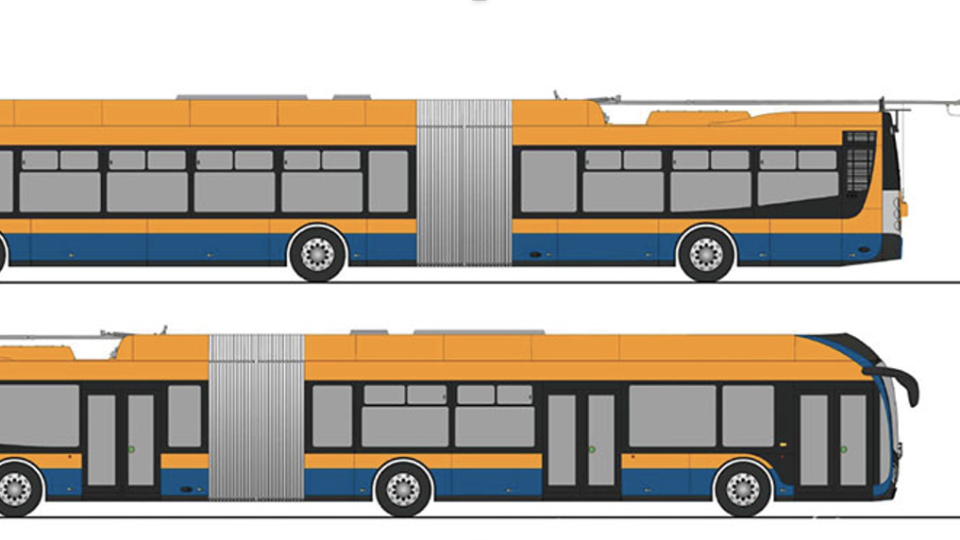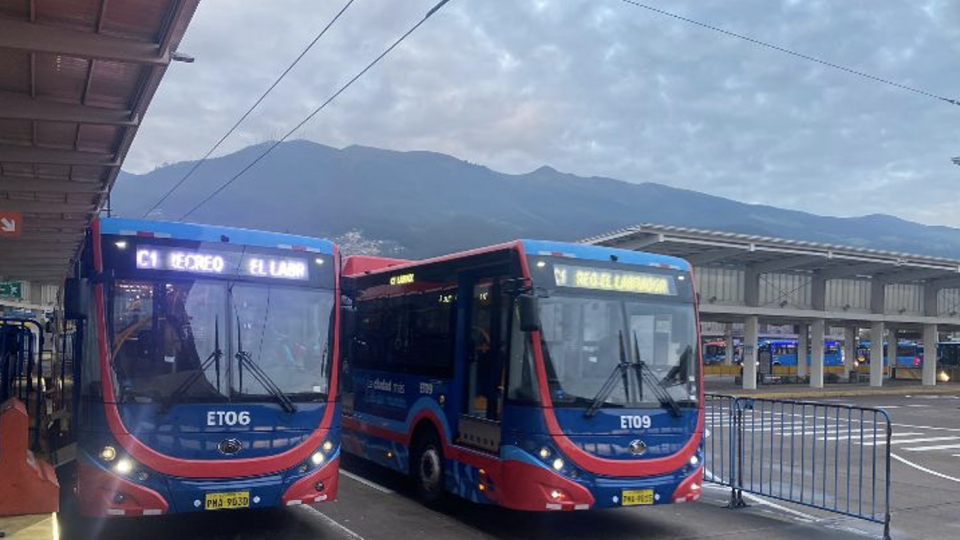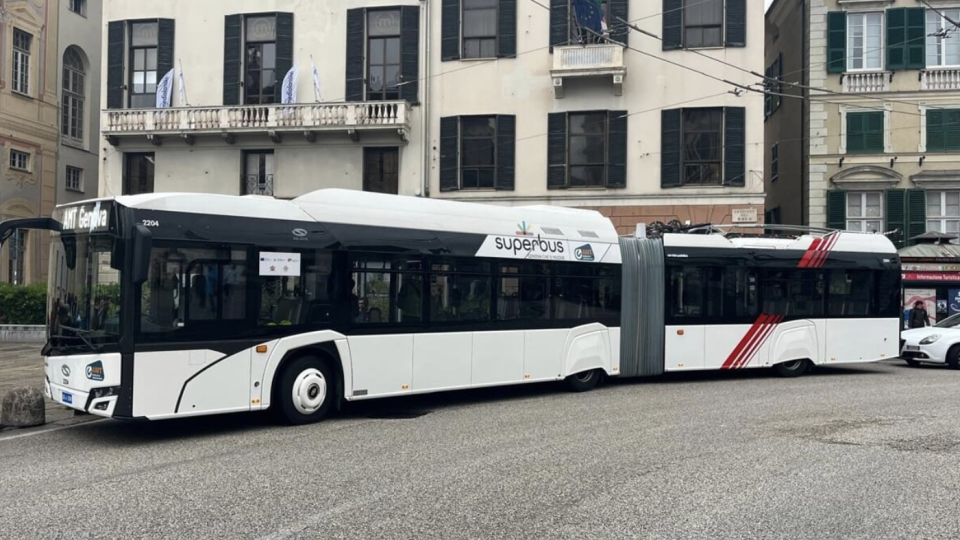New two tram lines will be in service in Casablanca
In Casablanca, the tram is being expanded. Two new lines, T3 and T4, are scheduled to open in june 2024. They will integrate with the existing T1 and T2 lines and increase the length of the network by about 60%. This is quite an achievement for Morocco’s largest city with 4 million inhabitants, which is equipping […]
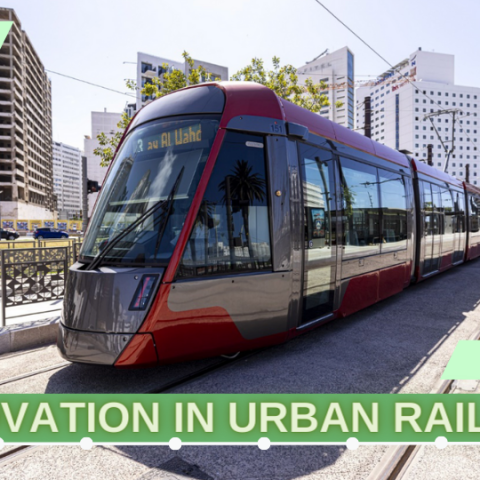
In Casablanca, the tram is being expanded. Two new lines, T3 and T4, are scheduled to open in june 2024. They will integrate with the existing T1 and T2 lines and increase the length of the network by about 60%. This is quite an achievement for Morocco’s largest city with 4 million inhabitants, which is equipping itself with a high-capacity tram network that is very popular with its citizens. When fully operational, the tram network (Casatramway) operated by RATP Dev Casablanca will be extended by 72 km with 110 stops.
The Casablanca tram network is the second largest in Morocco, after the Rabat network inaugurated in 2011, and in 10 years it has been an example of modern and competitive transport, serving most of Casablanca’s neighbourhoods. On the basis of the excellent results obtained, with passenger traffic growing steadily, the Municipality of Casablanca has therefore decided on a major expansion of the service, providing two new tram lines.
Line T3 will run from Gare de Casa-Port to Hay El Wahda; 14.1 km long, it will have 20 stops; line T4 will connect Parc de la Ligue Arabe to Mohammed Erradi; the line will be 12.5 km long, with 19 stops. The project does not provide for common sections of the four lines, although there are, of course, connections that are used for service requirements.
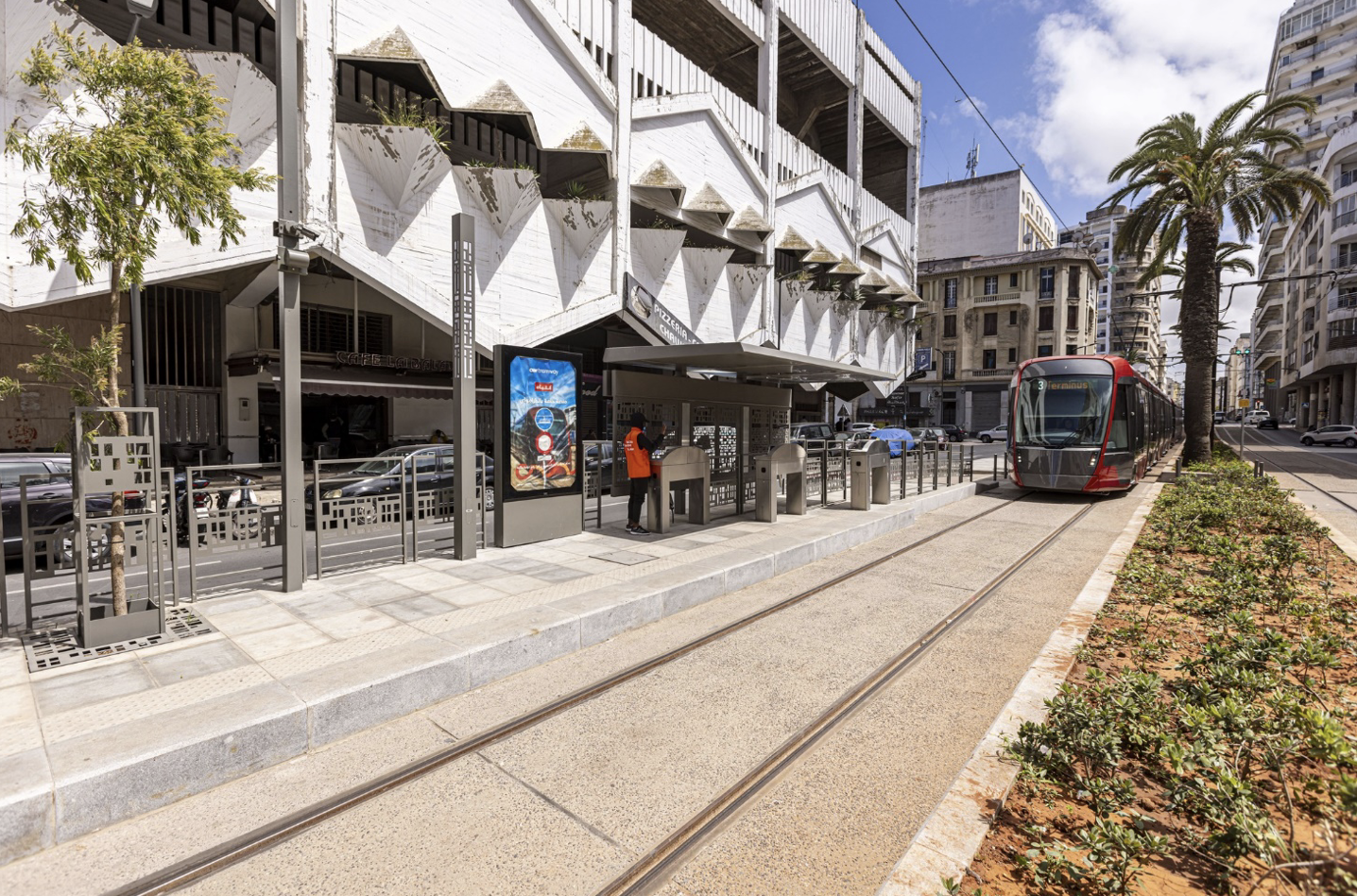
The T1 line, 23.6 km long, with 38 stops, was opened on 12 December 2012, after two years of construction work, while the T2 line, opened in January 2019, is 22 km long, with 33 stops. The two lines cross the city from east to west. The initial fleet consisted of 74 Citadis manufactured by Alstom, equipped with a single driver’s cab but with doors on both sides to form reversible block compositions accommodating up to 440 people. A further 50 identical vehicles will arrive in 2019 for Line 2. Passages are provided at peak hours about every 4 minutes, while at off-peak hours they run every 8 minutes.
The commercial speed is about 19 km/h. The crowding at the stops, all of which have limited access and are manned by two attendants, sometimes results in longer stops, as does the rather slow journey in the city centre and on winding stretches in narrow streets. In addition to traffic lights, larger road junctions are also checked.
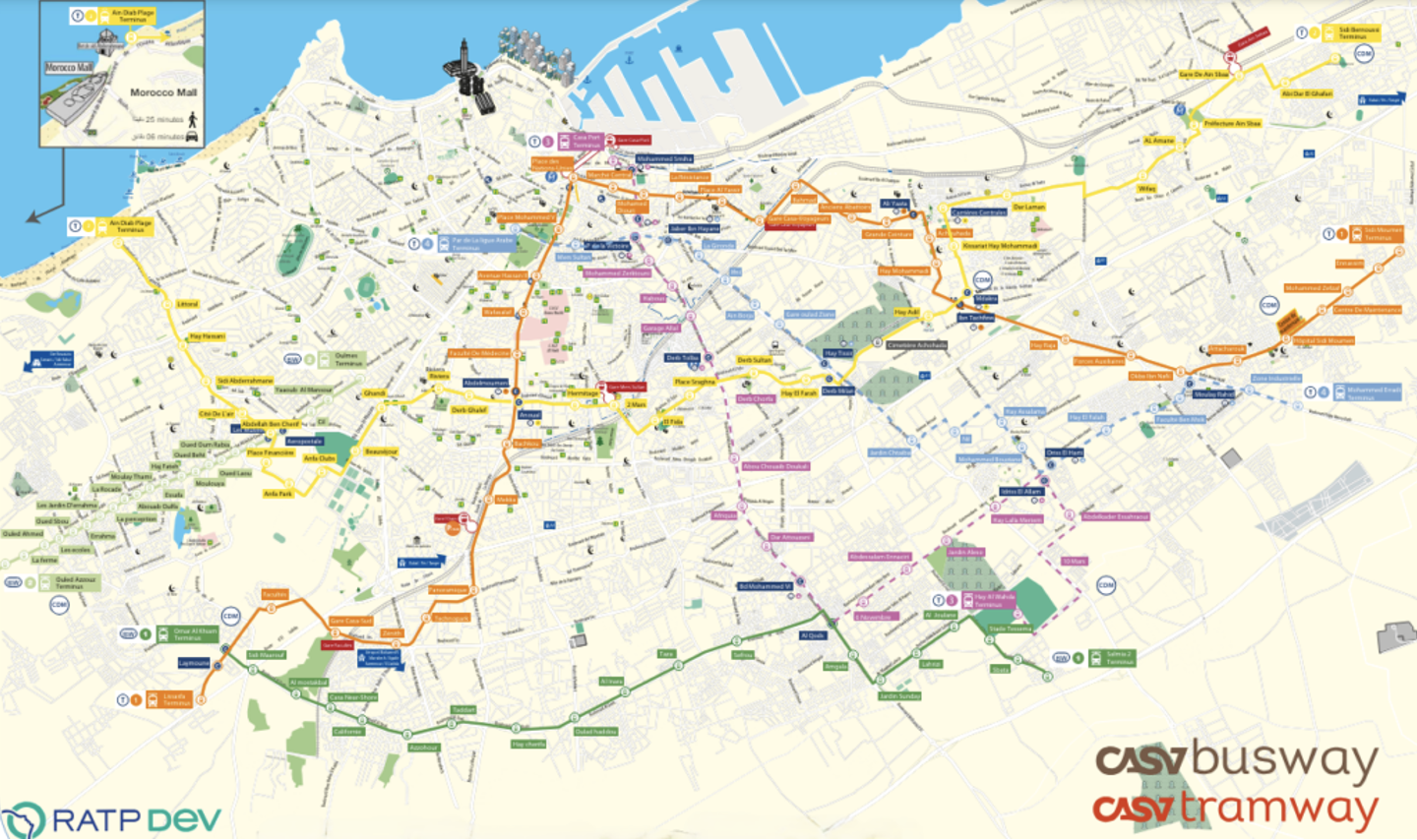
Currently, the 66 new Citadis X05 trams built by Alstom from 2022, identical to the previous series and always running in double traction, are in pre-operation on the two new lines. The T4 line will later be extended from the Parc de la Ligue Arabe to the Grand Mosque on Casablanca Beach, and the construction of further tram lines is planned in the medium term.
Also in 2024, two Bus Rapid Transit (BRT) lines, identified as BW1 and BW2, have been activated. The two lines do not enter the city centre, but interchange with the T1 and T2 lines with which they integrate. Four-axle Mercedes-Benz CapaCity L articulated buses are used. The long-term options also include the construction of a predominantly underground metro system, which could certainly serve the growing conurbation of Casablanca very well.
by Stefano Alfano




